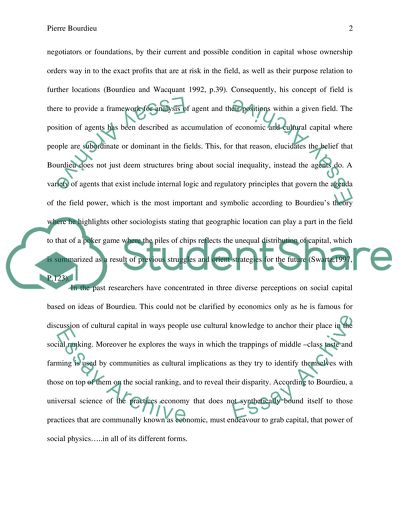Cite this document
(“Pierre bourdieu Essay Example | Topics and Well Written Essays - 3000 words”, n.d.)
Retrieved from https://studentshare.org/sociology/1478749-pierre-bourdieu
Retrieved from https://studentshare.org/sociology/1478749-pierre-bourdieu
(Pierre Bourdieu Essay Example | Topics and Well Written Essays - 3000 Words)
https://studentshare.org/sociology/1478749-pierre-bourdieu.
https://studentshare.org/sociology/1478749-pierre-bourdieu.
“Pierre Bourdieu Essay Example | Topics and Well Written Essays - 3000 Words”, n.d. https://studentshare.org/sociology/1478749-pierre-bourdieu.


